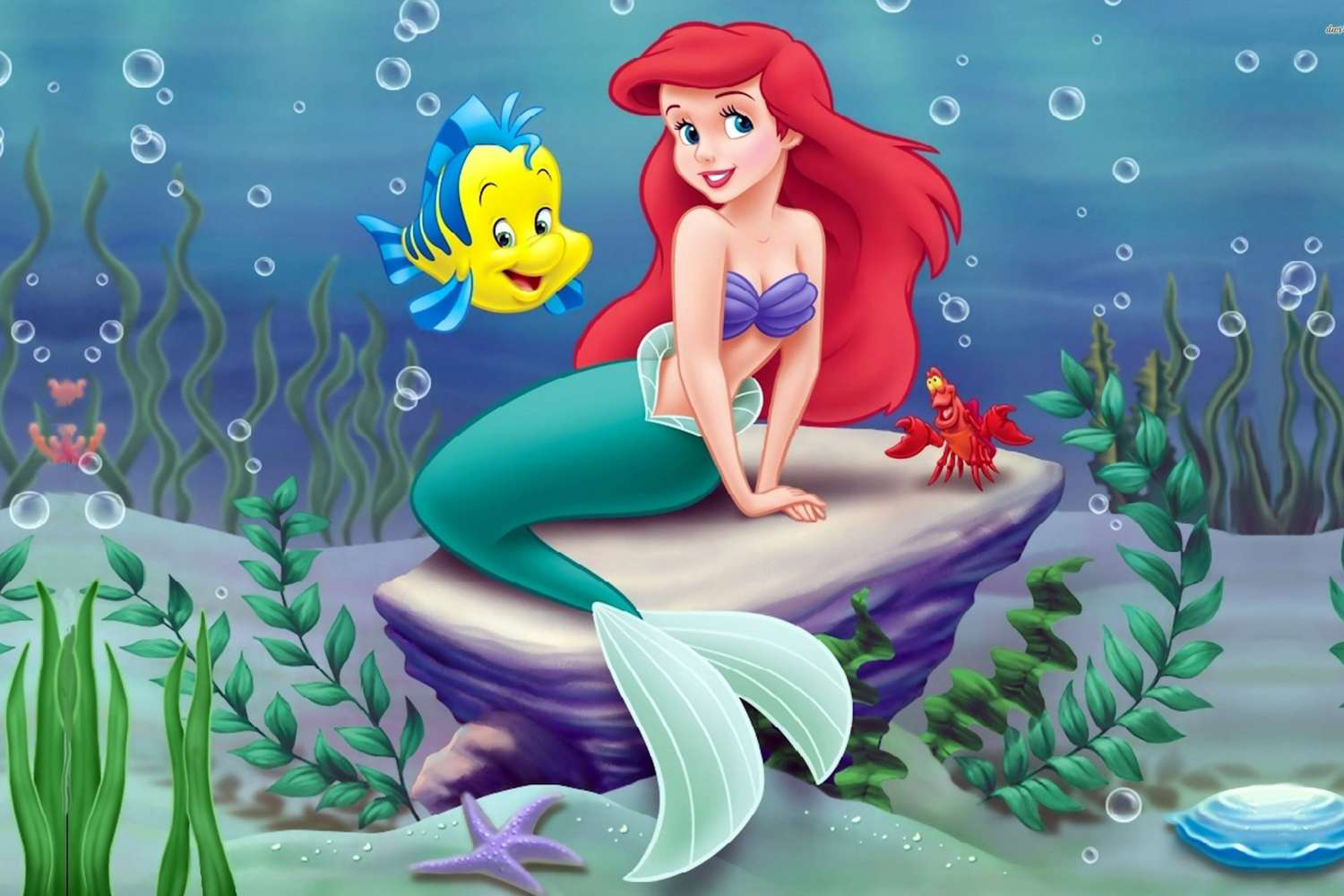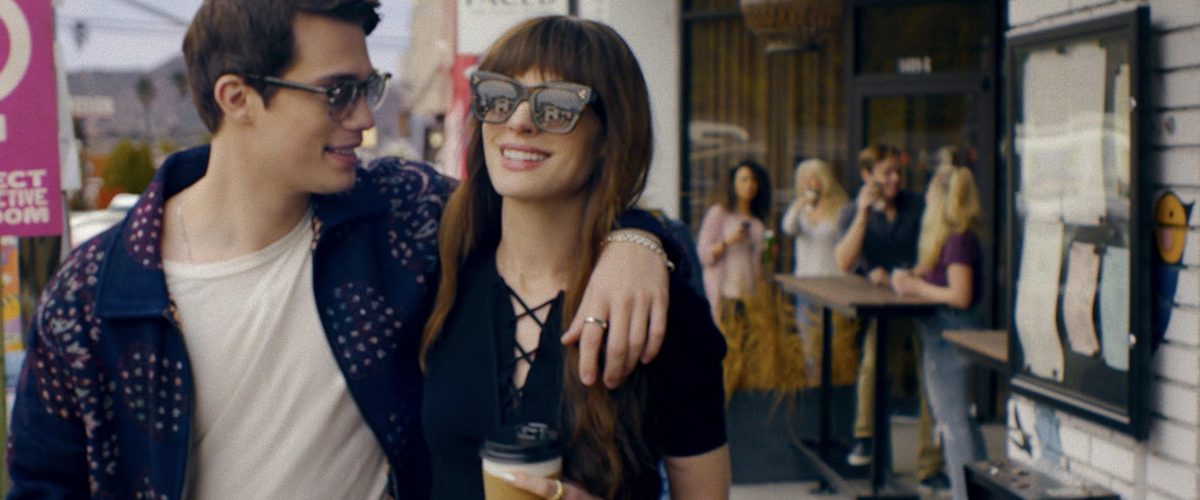A relative texted me about a month ago curious about my reaction to the movie The Idea of You (hereafter TIOY). This request came right in the middle of moving and my youngest child graduating from college, so I never made it to the theater. Last night I finally got to endure … I mean watch … it.
Here is my reaction. NOTE: the are MANY SPOILERS.
I want to give some context to my reaction. First, I watched the movie without knowing anything about it except the title and that it’s “now streaming on Amazon Prime.” I didn’t know it was a rom-com, and when I saw Anne Hathaway, the first thing that came to mind was the intensely dark and dramatic role she played as someone with bipolar disorder in an episode of Modern Love.

Brad Bull
Additionally, before writing this, I didn’t read or hear any reactions to the film. After the first draft, to seek feedback, I asked on social media if I had friends who would “admit to” seeing the movie to the end. Opinions were split in favor of folks enjoying it versus those who couldn’t finish it.
Second, I learned the movie was based on a novel by the same name, and I remember the old joke about the novelist claiming to have gotten the idea for their second novel by seeing the movie version of their first novel. Thus, I don’t know how the novel may have been different.
Third, I have a 27-year-old daughter who, as a tween, loved The Princess Diaries — which starred a teenaged Anne Hathaway. Let’s connect this father/daughter cinema dot to some others. I had loved The Little Mermaid, right up until, at age 30, I saw it through my new eyes as the father of a person I wanted to grow up to be a strong, independent woman. Yes, Ariel’s dad was overbearing, but he wanted her to be happy with her identity rather than trying to be something she wasn’t. Ariel gives up her voice, and the only way for her to get her voice back is to be kissed by a guy. (Sleeping Beauty was out cold until kissed by a guy.) This was not the message I wanted instilled in my daughter — or my son — and I was elated when the VCR ate the VHS tape of The Little Mermaid someone had given her for Christmas.
Growing up, my daughter frequently heard my critique of The Little Mermaid. She also heard my disdain for the even more toxic Beauty and the Beast. If Little Mermaid and Sleeping Beauty portray women as voiceless without a man, Beauty and the Beast goes to the other extreme and depicts a woman as all-powerful and responsible for fixing the monster of a man (who looks like a cross between a lion and a bear).

Jazmine and Aladin
To the apparent credit of Beauty and the Beast, Belle doesn’t marry Beast until he is no longer a beast. However, as a minister and therapist, many tears have been shed in my office as women have sobbed, “I thought he would change after we married.” They had bought into the notion that what the guy in their life needed was their love and the only way they had not expressed it was through the trust of marriage. So, they had hoped surrender into marriage would fix him.
One more point while we’re addressing the impact of films on attitudes: At around age 12, after hearing one of my rants like this, my exasperated daughter pleaded, “Are there any Disney princess movies you like?”
I thought for a minute. This was before Mulan and other more recent Disney productions. I finally said, “Aladdin.” It’s unfortunate that Jazmine is not a title character, but we discussed that Jazmine is strong and she and Aladdin work independently and collaboratively on self-improvement. Thus, rather than being dependent like Ariel or codependent like Belle, Jazmine and Aladdin form a healthy interdependent relationship that nurtures what we need in relationships: mutuality and teamwork.
Also, while Ariel’s father was overbearing but ultimately concerned for her well-being, Jazmine’s father was abusive and focused on his own advancement. Thus, Jazmine’s disobedience was completely appropriate. (“But you may not wear a midriff-baring shirt to school. Nor may your brother.”)

Ariel in “The Little Mermaid”
Back to our story
That brings us to The Idea of You. In the new film, Hathaway plays 40-year-old Solène Marchand, an art gallery owner who is mother of a teen daughter and is divorced from the teen’s father who left her for a younger woman. A few minutes into the film, I commented, “Other than what I’m sure was Anne Hathaway’s large salary, this seems pretty cheaply made.” The female family member with whom I was watching agreed and then fell asleep. (To be fair, she had a headache before the movie started.)
Through a chain of events, Solène meets Daniel, the 24-year-old lead singer of a boy band (think One Direction). Solène’s teen daughter, Izzy, and her friends adore the band so much that Izzy’s female friend forgets her own name in the presence of the hunky singers. Note, already, that a woman has lost her voice in the presence of a man.
The script makes a vapid attempt at pretending to promote female empowerment when Izzy eventually asks Solène if Daniel is a feminist. Solène assures her that he is, although I don’t recall anything that would give evidence of this. Using the word “feminism” doesn’t stop the film from being Hollywood cotton candy — fun to eat but lacking nutrition. It’s OK to eat cotton candy from time to time as long as we know it’s not a spinach salad. In reaction to an early draft of this piece, one of my male friends said of TIOY: “Is it sexist? Yes. Do my daughters know that? Yes. Did I enjoy it nevertheless? Yes.”

Screenshot
We absolutely need cotton candy in our lives and to teach our children to differentiate it from a spinach and strawberry salad with light oil and vinegar dressing. (Yes, it’s near supper time, and I’m hungry.) However, can movies be both fun and truly empowering? Certainly.
Just look at The Incredibles and Sleepless in Seattle. If not empowering, they certainly don’t need to undermine empowerment. Other than Izzy’s passing reference to the ideal of female empowerment, TIOY is a boxcar train of sexist fairytale tropes. The attempt to say an older woman can be with a younger man falls flat from the get-go when the band members think Solène and Izzy are sisters. The message: A younger man can be attracted to an older woman as long as she looks like she’s in her teens or 20s. As a female friend who loved the movie qualified: “Have you seen the Threads discourse over Anne Hathaway being 40? That’s the part that has bothered me more than anything as a 47 year old. … A rich woman in Hollywood has all the resources available to her to keep her skin and body looking younger and younger.”
The existing stereotype is that men become more dignified with age and are attractive to women due to their ability to provide at least financial stability or, ideally, extravagance. The contrasting stereotype is that women are attractive to men if they are youthful. In sociological terms, the concept of the marriage gradient describes the phenomenon that women tend to marry men who are older, taller, more educated, higher in status, but less attractive.
TIOY simply makes the male younger than the female. While Solène is portrayed as a successful businesswoman, Daniel swoops in and blithely purchases all the works in her high-end gallery. Daniel shows only cursory interest in the depth of the art.
Solène initially rejects Daniel’s overtures for a date, but she caves to his pressure, money and raw sex appeal. We see no shift rooted in an intellectually stimulating conversation or the discovery of some kind nurturing nature in Daniel that might have been evidenced in —say — a depiction of him offering meaningful care to a person or group in need. Nope. The closest we get to substance is that he can play piano a bit. After doing so, he touches Solène gently on the hand, and then the passionate make-out scene begins — to be followed by several scenes of passionate sex — I won’t say “love” making. Genuinely mature love is not something we see in the film, just infatuation. Even after the five years of separation (discussed below), there’s no portrayal of conversations or any of the things that indicate mature love.

Anne Hathaway and Nicholas Galitzine in The Idea of You (IMDB)
Real sex
In one of the steamy sex scenes, Daniel slips his hand inside Solène’s dress, and his hand descends toward her genitals. She appears to become almost instantly orgasmic. This feeds an unrealistic sexual expectation.
In her wonderful relationship podcast “Foreplay Radio,” sex therapist and licensed marriage and family therapist Laurie Watson reports most women require about 25 minutes of stimulation to achieve orgasm. She also reports most women find quick movement to genitals to be off-putting. Yet, TIOY promotes the notion of women becoming near-instantly ignited under the irresistible power of a man’s touch.
“TIOY promotes the notion of women becoming near-instantly ignited under the irresistible power of a man’s touch.”
In 1971, Helen Reddy sang, “I am woman, hear me roar.” Gloria Steinem, Betty Freidan and the National Organization for Women helped make the song an anthem for women and the phrase a slogan for feminism. Let us not be confused that TIOY, in its supposed attempt to promote feminism by showing a woman in a relationship with a younger man, takes the true slogan of feminism and coverts it to “I am woman, hear me moan.”
I have two dear friends married to men who are more than 15 years older than they. While that’s an uncommon age differential, a woman being that much older than her partner is very rare. (My maternal grandmother was almost 10 years older than my grandfather — a female-to-male age gap rare today and likely more so in the 1930s. I’ve always suspected that pairing was rooted in the limited selection of potential partners in the logging camps of East Tennessee and Western North Carolina.)
The producers of TIOY seem to believe flipping the age stereotype constitutes feminism and the audience will ignore the other tropes. However, this story seems to be just a vanilla version of Fifty Shades of Gray. I read the first book to understand what all eight of the female students in a graduate counseling class were so excited about in pre-class banter. The public made much ado about the S&M sex, but that’s a small portion of the story. It’s mostly about the fantasy of a rich man finding a woman irresistible and providing her exotic trips. To be sure, when I made that comment to a female friend shortly after the Fifty Shades movie came out, she somberly replied, “It’s about more than that. It’s about trust.”
She’s right. Fifty Shades has much socially redeeming value. TIOY has some. For instance, Izzy maturely confronts her mother’s dishonesty, then forgives her and rushes to console her in her pain. Solène maturely decides to end her relationship with Daniel out of concern for the impact on her daughter. But then comes the mixed bag. Daniel waits five years until Izzy is grown before he reinitiates his pursuit of Solène.
Patience certainly is a virtue. In the snapshot of the movie, it sounds like a sign of love rather than infatuation, but the movie never showed us sufficient evidence of that in dialogue or the challenges of being together long term; it mostly just showed the fairytale cliches of money, fame and passionate sex.
The prefix “eu” means “well” or “good.” Think euphoria (good bearing) and eulogy (good word). Eu-feminism as promoted by Susan B. Anthony and those in her spirit seeks to empower women with freedom, equality and justice. Pseudo feminism — like that in TIOY — simply pretends to promote female empowerment.
TIOY’s key message to women seems to be: If you look young enough to pass as your daughter’s sister, you can land yourself a young stud who will woo you with passionate sex and jet-set trips around the world. Given that men’s sex drive peaks in their teens to 20s and women’s sex drive peaks after age 30, the movie offers a fantasy for both young men and middle-aged women.
It’s fun to think about. It’s an idea. However, good feminism needs to be more than a fantasy about being irresistible to a young, rich stud. While women deserve the right to be as shallow as the stereotypical male, a better message would help both men and women nurture depth as shown in intellectual and spiritual connection that leads to sex as the expression of maturity and commitment.
This movie had the potential to do that and be fun. Instead, it bit the apple of appeal to populist ticket sales … and fell asleep.
Brad Bull has served as a hospital chaplain, pastor and university professor. He currently works as a licensed marriage and family therapist in Tennessee and Virginia. His counseling and speaking services are at DrBradBull.com.


